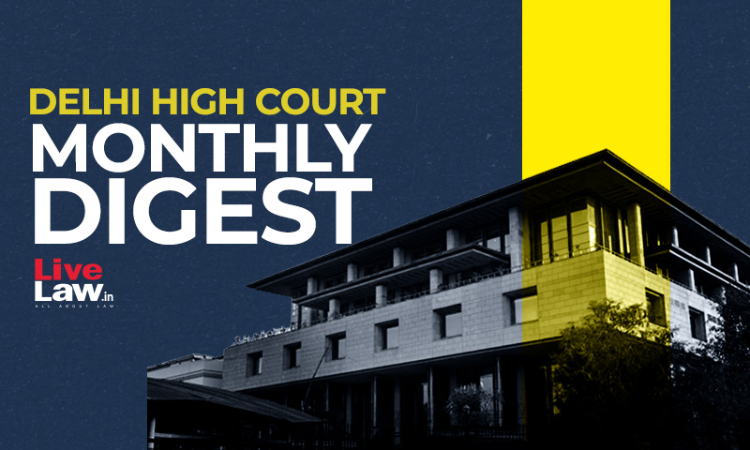- Home
- /
- News Updates
- /
- Delhi High Court Monthly Digest:...
Delhi High Court Monthly Digest: January 2022
Nupur Thapliyal
1 Feb 2022 11:11 AM IST
This digest contains a total of 66 important judgments and orders of the Delhi High Court for the month of January reported by Live Law. 1. Arrest In Breach Of 'Arnesh Kumar' Guidelines : Delhi High Court Sentences Police Officer To One Day ImprisonmentCase Title: RAKESH KUMAR v. VIJAYANTA ARYA (DCP) AND ORSCitation: 2022 LiveLaw (Del) 1In a significant judgment, the Delhi High Court held...
Next Story



